10 Best Herbal Creams For Phlegm
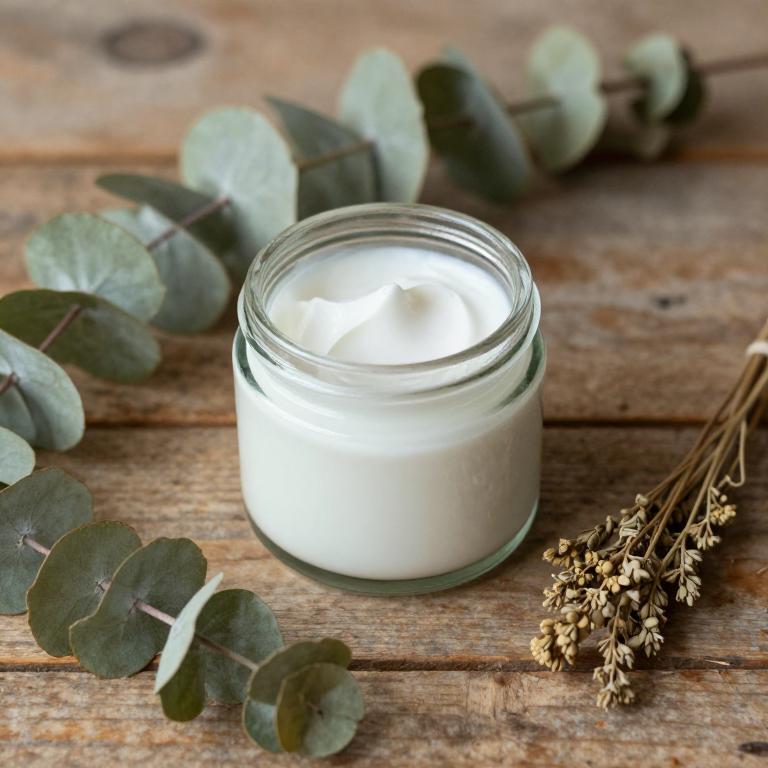
Herbal creams for phlegm are topical treatments that combine natural ingredients to help alleviate symptoms associated with respiratory congestion.
These creams often contain herbs such as eucalyptus, menthol, and camphor, which are known for their decongestant and soothing properties. While they are not a substitute for medical treatment, they can provide relief by reducing inflammation and promoting easier breathing. Many people prefer herbal creams due to their natural composition and fewer side effects compared to pharmaceutical alternatives.
However, it is important to consult a healthcare professional before using these products, especially for persistent or severe respiratory conditions.
Table of Contents
- 1. Eucalyptus (Eucalyptus globulus)
- 2. Ginger (Zingiber officinale)
- 3. Peppermint (Mentha piperita)
- 4. Black pepper (Piper nigrum)
- 5. Licorice (Glycyrrhiza glabra)
- 6. Thyme (Thymus vulgaris)
- 7. Rosemary (Rosmarinus officinalis)
- 8. Fennel (Foeniculum vulgare)
- 9. Ceylon cinnamon (Cinnamomum verum)
- 10. Parsley (Petroselinum crispum)
1. Eucalyptus (Eucalyptus globulus)

Eucalyptus globulus, commonly known as eucalyptus oil, is often used in herbal creams for its expectorant properties that help loosen and expel phlegm from the respiratory system.
These creams typically contain a blend of eucalyptus oil with other natural ingredients like menthol, camphor, and beeswax, which work synergistically to reduce congestion and soothe irritated airways. The cooling and anti-inflammatory effects of eucalyptus globulus can provide relief from symptoms associated with colds, coughs, and bronchitis. When applied topically to the chest or throat, these creams may help ease breathing and promote easier mucus clearance.
However, it is important to consult a healthcare professional before use, especially for individuals with sensitive skin or underlying health conditions.
2. Ginger (Zingiber officinale)

Zingiber officinale, commonly known as ginger, has been traditionally used for its medicinal properties, including its potential to help alleviate symptoms related to respiratory conditions.
Ginger contains compounds like gingerol and shogaol, which have anti-inflammatory and antioxidant effects that may help reduce mucus production and ease congestion. When incorporated into herbal creams, zingiber officinale can provide a topical application that supports respiratory health by soothing irritated airways and reducing inflammation. These creams are often used as a complementary therapy alongside conventional treatments for conditions like bronchitis or the common cold.
However, individuals should consult with a healthcare professional before using ginger-based products, especially if they have allergies or are taking other medications.
3. Peppermint (Mentha piperita)

Mentha piperita, commonly known as peppermint, is often used in herbal creams to help alleviate symptoms associated with excess phlegm.
These creams typically contain menthol, which has a cooling effect and can help soothe the throat and reduce the sensation of congestion. The menthol in peppermint creams may also help to thin mucus, making it easier to expel from the respiratory tract. However, while some people find relief from using these creams, they are not a substitute for medical treatment, especially in cases of chronic or severe respiratory conditions.
It is important to consult a healthcare professional before using peppermint-based products, particularly if you have sensitive skin or underlying health issues.
4. Black pepper (Piper nigrum)

Piper nigrum, commonly known as black pepper, has been traditionally used in herbal remedies for its expectorant properties, which can aid in reducing phlegm.
The active compound, piperine, is believed to stimulate the secretion of mucus and enhance the clearance of respiratory secretions. When incorporated into herbal creams, piper nigrum may provide a topical application that supports respiratory health by reducing congestion. These creams are often used as complementary therapy alongside conventional treatments for conditions like bronchitis or colds.
However, it is important to consult a healthcare professional before using piper nigrum-based products, especially for individuals with sensitive skin or existing medical conditions.
5. Licorice (Glycyrrhiza glabra)

Glycyrrhiza glabra, commonly known as licorice root, has been traditionally used in herbal medicine for its expectorant properties, making it a valuable ingredient in creams and topical formulations aimed at alleviating respiratory symptoms.
These herbal creams often contain licorice extract, which is believed to help loosen mucus and reduce throat irritation, providing relief from coughing and congestion. The anti-inflammatory and soothing effects of licorice root may help ease the discomfort associated with excessive phlegm and respiratory conditions. However, it is important to note that while licorice-based creams can offer symptomatic relief, they are not a substitute for medical treatment, especially in cases of persistent or severe respiratory issues.
As with any herbal product, it is advisable to consult a healthcare professional before use, particularly for individuals with hypertension or those taking medications that interact with licorice.
6. Thyme (Thymus vulgaris)
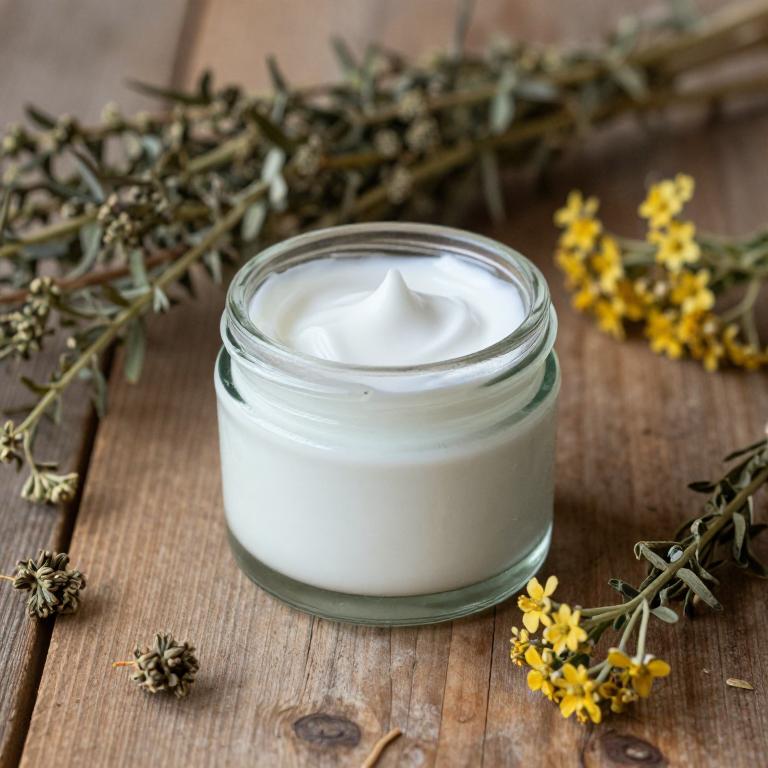
Thymus vulgaris, commonly known as thyme, is often used in herbal remedies for its potential respiratory benefits, including its role in reducing phlegm.
Thyme contains thymol, a compound with antimicrobial and anti-inflammatory properties that may help clear mucus from the airways. Herbal creams infused with thymus vulgaris are sometimes used topically to soothe sore throats and reduce congestion associated with respiratory infections. While these creams may offer some relief, they are not a substitute for medical treatment, especially for persistent or severe phlegm production.
It is important to consult a healthcare professional before using any herbal remedy to ensure safety and effectiveness.
7. Rosemary (Rosmarinus officinalis)

Rosmarinus officinalis, commonly known as rosemary, is often incorporated into herbal creams for its potential respiratory benefits, particularly in supporting the clearance of phlegm.
These creams typically combine rosemary essential oil with other natural ingredients like eucalyptus or peppermint to enhance their effectiveness in easing congestion. The anti-inflammatory and antioxidant properties of rosemary may help reduce mucus buildup and soothe irritated airways. When applied topically, these creams can provide a warming sensation that helps stimulate circulation and ease breathing.
However, it is important to consult a healthcare professional before using rosemary-based products, especially for individuals with sensitive skin or existing respiratory conditions.
8. Fennel (Foeniculum vulgare)
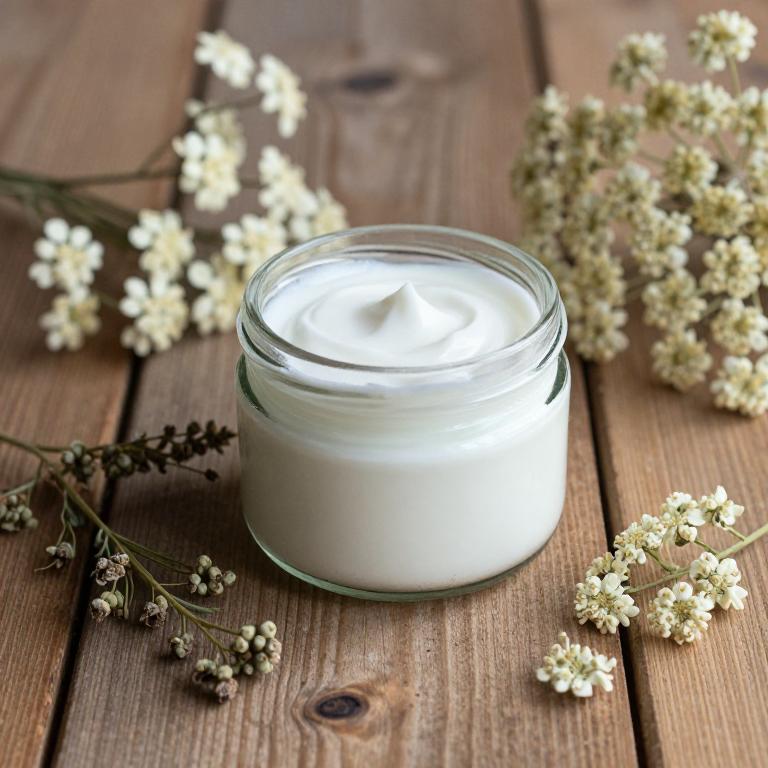
Foeniculum vulgare, commonly known as fennel, is often used in herbal creams for its potential respiratory benefits, including its ability to help alleviate symptoms associated with phlegm.
The essential oils derived from fennel seeds contain compounds like anethol and limonene, which are believed to have expectorant properties that may help loosen and expel mucus from the respiratory tract. When incorporated into creams, fennel can provide a topical application that may support the body's natural process of clearing phlegm, particularly when applied to the chest or throat area. However, it is important to note that while fennel may offer some relief, it should not replace professional medical advice or treatment for persistent respiratory conditions.
As with any herbal remedy, it is advisable to consult a healthcare provider before use, especially for individuals with allergies or underlying health conditions.
9. Ceylon cinnamon (Cinnamomum verum)
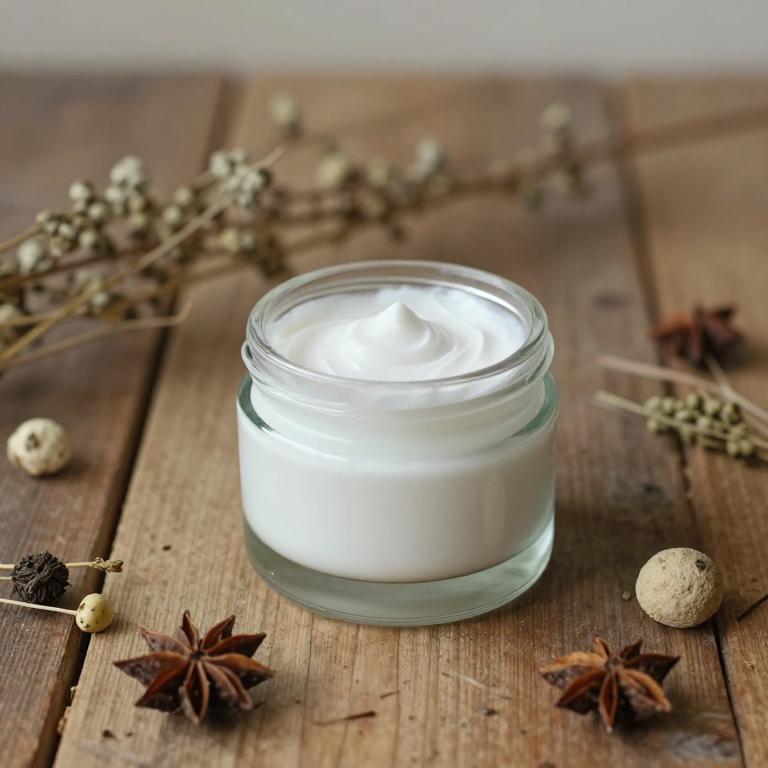
Cinnamomum verum, commonly known as true cinnamon, has been traditionally used in herbal remedies for its potential respiratory benefits.
When incorporated into herbal creams, cinnamon may help soothe inflamed airways and reduce mucus production due to its antimicrobial and anti-inflammatory properties. These creams are often applied topically to the chest or throat to provide localized relief from congestion and coughing. While not a substitute for medical treatment, they can complement conventional therapies for mild respiratory conditions.
However, individuals with sensitive skin or allergies should consult a healthcare provider before using cinnamon-based products.
10. Parsley (Petroselinum crispum)
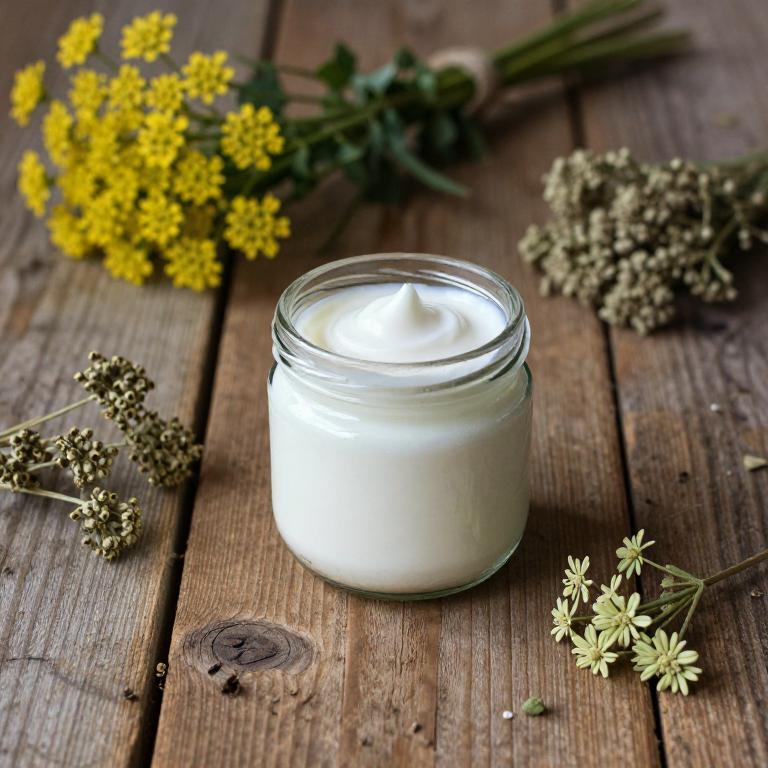
Petroselinum crispum, commonly known as parsley, has been traditionally used in herbal medicine for its potential respiratory benefits, including its role in supporting the clearance of phlegm.
The essential oils found in parsley, such as apiol and limonene, are believed to have expectorant properties that may help loosen mucus in the airways. Herbal creams infused with petroselinum crispum are formulated to provide a topical application that may aid in reducing congestion and promoting easier breathing. These creams are often used as a natural alternative to conventional remedies for those seeking a gentler approach to managing respiratory symptoms.
However, it is important to consult with a healthcare professional before using such products, especially for individuals with known allergies or underlying health conditions.